A divorced Muslim woman can seek alimony from her husband under Section 125 of the Code of Criminal Procedure - the law related to maintenance for wives
The Supreme Court has ruled that Muslim women may file for maintenance from their divorced husbands under Section 125 of the Code of Criminal Procedure.
In today's DNA, Anant Tyagi analyses what the Supreme Court said on maintenance for Muslim women
A person with sufficient wealth cannot refuse support to his wife, children, or parents, according to Section 125 of the CrPC.
The top court also echoed that the time has come for Indian men to recognise the role and sacrifice of 'homemakers' who are the strength and backbone of an Indian family and they must provide financial support to her by having joint accounts and ATMs.
A bench of justices BV Nagarathna and Augustine George Masih ruled that Section 125 CrPC, which deals with wife's legal right to maintenance, applies to all women and a divorced Muslim female can claim maintenance from her husband under it.
In doing so, the court clarified that a Muslim woman's rights under the Muslim Women (Protection of Rights on Divorce) Act of 1986 are extra legal rights that she can obtain on top of existing laws. It is noteworthy that the 1986 Act permits a Muslim woman who has divorced to receive support; nevertheless, this provision is restricted to the Iddat period.
This phase often lasts for ninety days following the divorce. The court has stated that it is important to emphasise that a divorced Muslim woman is not prohibited from exercising her independent right to maintenance under the secular provision of Section 125 of the CrPC in light of the provisions of the 1986 Act.
"Section 125 of the CrPC applies to all married women including Muslim married women. Section 125 of the CrPC applies to all non-Muslim divorced women," the top court said.
"Insofar as divorced Muslim women are concerned, - i) Section 125 of the CrPC applies to all such Muslim women, married and divorced under the Special Marriage Act in addition to remedies available. If Muslim women are married and divorced under Muslim law then Section 125 of the CrPC as well as the provisions of the 1986 Act are applicable. Option lies with the Muslim divorced women to seek remedy under either of the two laws or both laws. This is because the 1986 Act is not in derogation of Section 125 of the CrPC but in addition to the said provision," the top court said.
If Section 125 of the CrPC is also resorted to by a divorced Muslim woman, as per the definition under the 1986 Act, then any order passed under the provisions of 1986 Act shall be taken into consideration under Section 127(3)(b) of the CrPC, the court said.
The 1986 Act could be resorted to by a divorced Muslim woman, as defined under the said act, by applying thereunder which could be disposed off by the said enactment, the court said.
In case of an illegal divorce as per the provisions of the 2019 Act then, relief under Section 5 of the said Act could be availed for seeking subsistence allowance or, at the option of such a Muslim woman, remedy under Section 125 of the CrPC could also be availed, the court said.
Adding further to it, the top court directed if during the pendency of a petition filed under Section 125 of the CrPC, a Muslim woman is 'divorced' then she can take recourse under Section 125 of the CrPC or file a petition under the 2019 Act.
"The provisions of the 2019 Act provide remedy in addition to and not in derogation of Section 125 of the CrPC," the top court said.
The top court's ruling came on an appeal challenging the High Court of Telangana order dated December 13, 2023 which modified the family court decision. HC decreased the quantum of interim maintenance payable by the Appellant herein from Rs 20,000 per month to 10,000 per month. Senior Advocate S Wasim A Qadri along with advocate Saeed Qadri appeared for the husband in the matter.
The man has challenged the maintenance amount saying that section 125 is not maintainable given sections 3,4 and 5 of the Muslim women ( protection of rights of divorce) Act 1986.
The top court said that the High Court of Telangana, while modifying the Order of the Family Court, was correct in upholding the maintainability of the petition filed under Section 125 of CrPC and therefore, there is no infirmity in its impugned order dated December 13, 2023.
What is the case?
The case of Mohamed Abdul Samad v. State of Telangana and Anr is the subject of the Supreme Court's decision. The spouse in this instance, Abdul Samad, filed a complaint regarding support demands made by his ex-wife, from whom he separated in 2017.
Abdul Samad was first mandated by a family court to provide interim support to his ex-wife at the rate of Rs 20,000 per month.
He appealed this ruling to the Telangana High Court, claiming that the Muslim Women (Protection of Rights on Divorce) Act, 1986 prevents a divorced Muslim lady from claiming alimony under Section 125 CrPC, in accordance with Muslim personal law.
The maintenance was then lowered by the high court to ₹10,000 per month. Abdul Samad appealed the High Court's ruling to the Supreme Court.
(with inputs from ANI)
![submenu-img]() Bigg Boss OTT 3: Armaan, Kritika Malik slammed for promoting polygamy on show, grilled by journalists
Bigg Boss OTT 3: Armaan, Kritika Malik slammed for promoting polygamy on show, grilled by journalists![submenu-img]() Ranbir Kapoor talks about 'sacrifices' in his marriage with Alia Bhatt: 'It's impossible for...'
Ranbir Kapoor talks about 'sacrifices' in his marriage with Alia Bhatt: 'It's impossible for...'![submenu-img]() Meet Manu Bhaker, first Indian woman shooter to win medal in Olympics
Meet Manu Bhaker, first Indian woman shooter to win medal in Olympics ![submenu-img]() Centre clarifies on tax clearance certificate to fly abroad, says, 'Not all...'
Centre clarifies on tax clearance certificate to fly abroad, says, 'Not all...'![submenu-img]() Tillotama Shome recalls horrifying molestation incident she faced in Delhi: 'He unzipped his pants and forced...'
Tillotama Shome recalls horrifying molestation incident she faced in Delhi: 'He unzipped his pants and forced...'![submenu-img]() Meet woman, who grew up in slum, suffered from rare disease, cracked UPSC exam, became IAS officer, with AIR...
Meet woman, who grew up in slum, suffered from rare disease, cracked UPSC exam, became IAS officer, with AIR...![submenu-img]() CAT 2024 notification released at iimcat.ac.in, check eligibility criteria, application fees, registration details
CAT 2024 notification released at iimcat.ac.in, check eligibility criteria, application fees, registration details![submenu-img]() Meet woman, farmer’s daughter who cracked UPSC exam twice by 24, became IAS officer with AIR 47, she is one of India’s…
Meet woman, farmer’s daughter who cracked UPSC exam twice by 24, became IAS officer with AIR 47, she is one of India’s…![submenu-img]() Meet IIT-JEE topper with AIR 1, joined IIT Bombay, left after a year due to...
Meet IIT-JEE topper with AIR 1, joined IIT Bombay, left after a year due to...![submenu-img]() Meet woman, who cracked UPSC exam in her first attempt to become IAS officer, her AIR was...
Meet woman, who cracked UPSC exam in her first attempt to become IAS officer, her AIR was...![submenu-img]() 5 Men Rape Australian Woman In Paris Just Days Ahead Of Olympic | Paris Olympics 2024
5 Men Rape Australian Woman In Paris Just Days Ahead Of Olympic | Paris Olympics 2024![submenu-img]() US Elections: 'I Know Trump's Type', Says Kamala Harris As She Launches Election Campaign
US Elections: 'I Know Trump's Type', Says Kamala Harris As She Launches Election Campaign![submenu-img]() Breaking! Nepal Plane Crash: Saurya Airlines Flight With 19 On Board Crashes In Kathmandu
Breaking! Nepal Plane Crash: Saurya Airlines Flight With 19 On Board Crashes In Kathmandu![submenu-img]() J&K Encounter: Search Operation By Indian Army, Police Continue, 1 Terrorist Neutralised In Kupwara
J&K Encounter: Search Operation By Indian Army, Police Continue, 1 Terrorist Neutralised In Kupwara![submenu-img]() Breaking! Nepal Plane Crash: Saurya Airlines Flight With 19 On Board Crashes In Kathmandu
Breaking! Nepal Plane Crash: Saurya Airlines Flight With 19 On Board Crashes In Kathmandu![submenu-img]() 8 animals that eat their kids
8 animals that eat their kids![submenu-img]() 10 top car companies in the world
10 top car companies in the world![submenu-img]() Top 5 CNG cars under Rs 10 lakh: Check price, features, other details
Top 5 CNG cars under Rs 10 lakh: Check price, features, other details![submenu-img]() From Arshad Warsi to Salman Khan: Here's how much hosts of Bigg Boss were paid
From Arshad Warsi to Salman Khan: Here's how much hosts of Bigg Boss were paid![submenu-img]() This actor quit journalism for films, worked with Chiranjeevi, Ajay, Akshay; was unrecognisable in final days because...
This actor quit journalism for films, worked with Chiranjeevi, Ajay, Akshay; was unrecognisable in final days because...![submenu-img]() 'Combined failure of system': Rahul Gandhi reacts to Delhi coaching deaths
'Combined failure of system': Rahul Gandhi reacts to Delhi coaching deaths![submenu-img]() Delhi IAS coaching centre tragedy: Police arrests owner, coordinator after basement flooding claims lives of 3 students
Delhi IAS coaching centre tragedy: Police arrests owner, coordinator after basement flooding claims lives of 3 students![submenu-img]() Delhi tragedy: Who were 3 UPSC students killed in flooding at IAS coaching centre in Rajender Nagar?
Delhi tragedy: Who were 3 UPSC students killed in flooding at IAS coaching centre in Rajender Nagar?![submenu-img]() 'More than 50 soldiers were killed by...': Asaduddin Owaisi asks why BJP not taking Pakistan’s name amid J&K attacks
'More than 50 soldiers were killed by...': Asaduddin Owaisi asks why BJP not taking Pakistan’s name amid J&K attacks ![submenu-img]() Delhi-NCR Weather Update: Capital witnesses rain today; IMD issues yellow alert till this day; check full forecast
Delhi-NCR Weather Update: Capital witnesses rain today; IMD issues yellow alert till this day; check full forecast![submenu-img]() DRDO fortifies India's skies: Phase II ballistic missile defence trial successful
DRDO fortifies India's skies: Phase II ballistic missile defence trial successful![submenu-img]() Gaza Conflict Spurs Unlikely Partners: Hamas, Fatah factions sign truce in Beijing
Gaza Conflict Spurs Unlikely Partners: Hamas, Fatah factions sign truce in Beijing![submenu-img]() Crackdowns and Crisis of Legitimacy: What lies beyond Bangladesh's apex court scaling down job quotas
Crackdowns and Crisis of Legitimacy: What lies beyond Bangladesh's apex court scaling down job quotas![submenu-img]() Area 51: Alien testing ground or enigmatic US military base?
Area 51: Alien testing ground or enigmatic US military base?![submenu-img]() Transforming India's Aerospace Industry: Budget 2024 and Beyond
Transforming India's Aerospace Industry: Budget 2024 and Beyond![submenu-img]() Bigg Boss OTT 3: Armaan, Kritika Malik slammed for promoting polygamy on show, grilled by journalists
Bigg Boss OTT 3: Armaan, Kritika Malik slammed for promoting polygamy on show, grilled by journalists![submenu-img]() Ranbir Kapoor talks about 'sacrifices' in his marriage with Alia Bhatt: 'It's impossible for...'
Ranbir Kapoor talks about 'sacrifices' in his marriage with Alia Bhatt: 'It's impossible for...'![submenu-img]() Tillotama Shome recalls horrifying molestation incident she faced in Delhi: 'He unzipped his pants and forced...'
Tillotama Shome recalls horrifying molestation incident she faced in Delhi: 'He unzipped his pants and forced...'![submenu-img]() Watch: Anushka Sharma, Virat Kohli attend Krishna Das’ kirtan in London again, fans say 'setting high standards'
Watch: Anushka Sharma, Virat Kohli attend Krishna Das’ kirtan in London again, fans say 'setting high standards'![submenu-img]() 'Zyada free mat ho': Naezy gets into ugly spat with media inside Bigg Boss OTT 3 house, video goes viral
'Zyada free mat ho': Naezy gets into ugly spat with media inside Bigg Boss OTT 3 house, video goes viral![submenu-img]() Centre to introduce satellite-based toll system: How will it be different from FASTag? Check details
Centre to introduce satellite-based toll system: How will it be different from FASTag? Check details![submenu-img]() Man feeds giant crocodile with bare hands in terrifying viral video, internet is scared
Man feeds giant crocodile with bare hands in terrifying viral video, internet is scared![submenu-img]() Viral video: Desi girl's scintillating dance to Mungda raises temperature on internet, watch
Viral video: Desi girl's scintillating dance to Mungda raises temperature on internet, watch![submenu-img]() Viral video: Man trying to pet cheetah gets unexpected slap from wild cat, watch
Viral video: Man trying to pet cheetah gets unexpected slap from wild cat, watch![submenu-img]() Viral video: Leopard effortlessly climbs tree with massive prey in its mouth, watch
Viral video: Leopard effortlessly climbs tree with massive prey in its mouth, watch
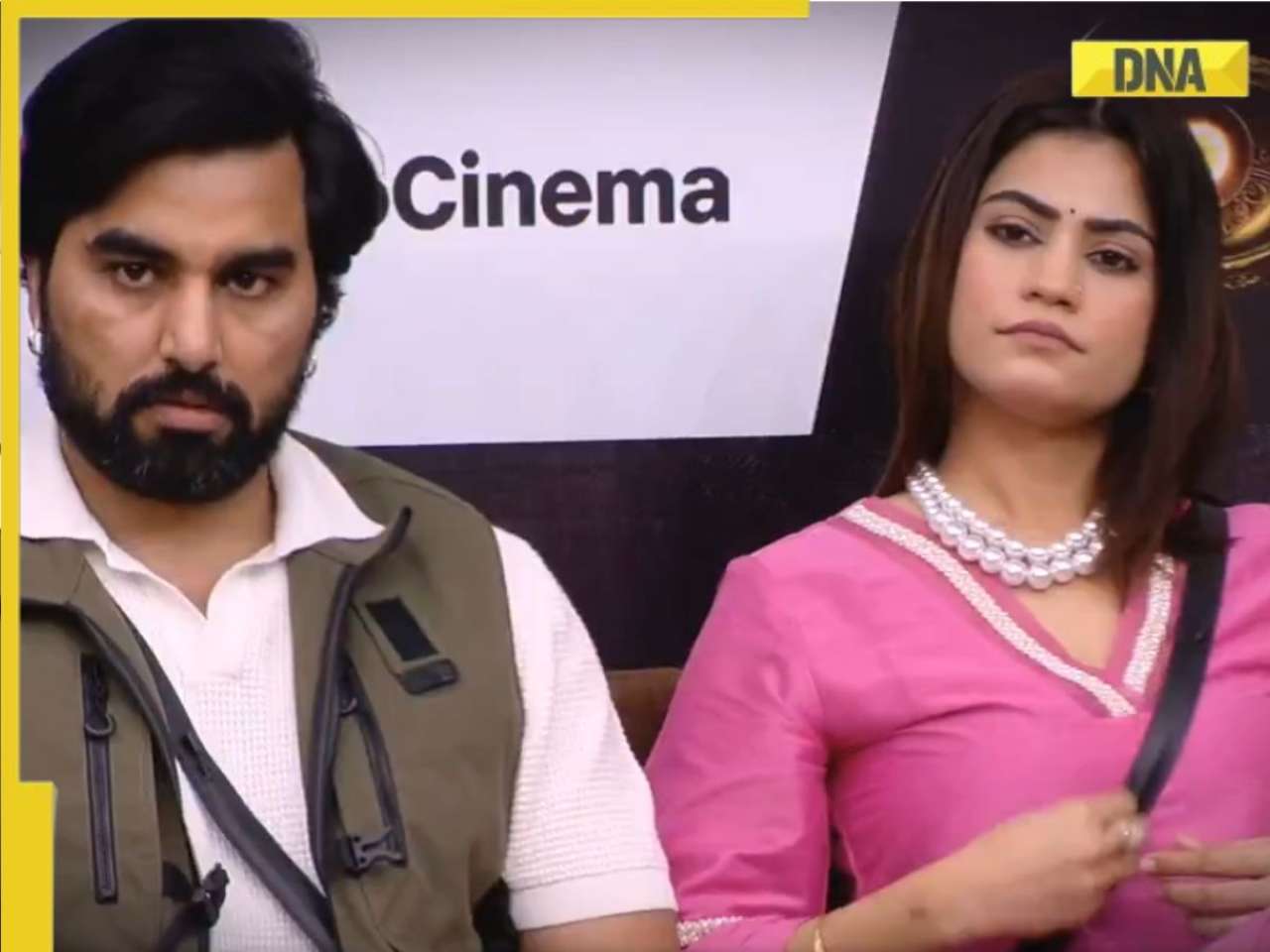
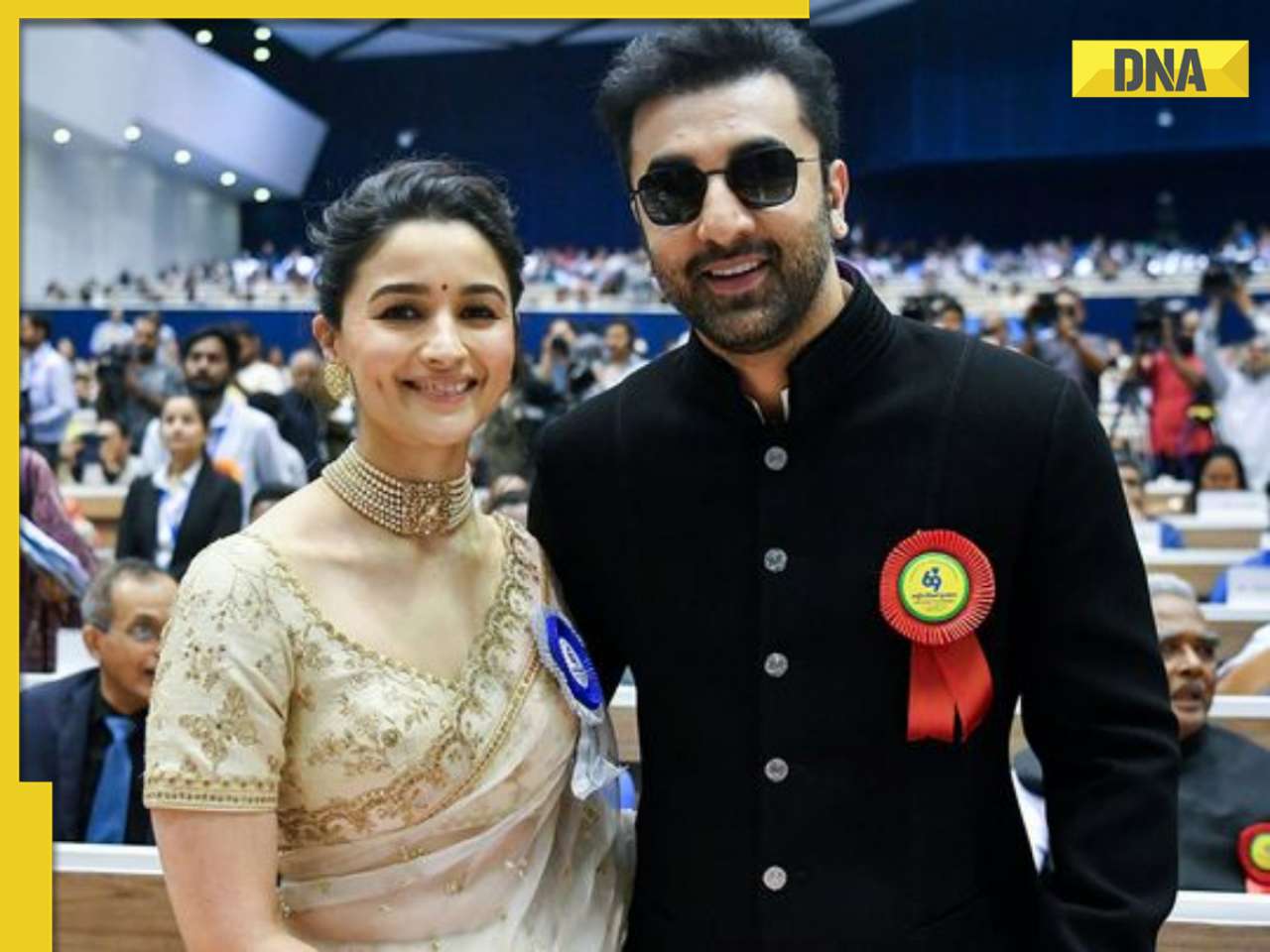
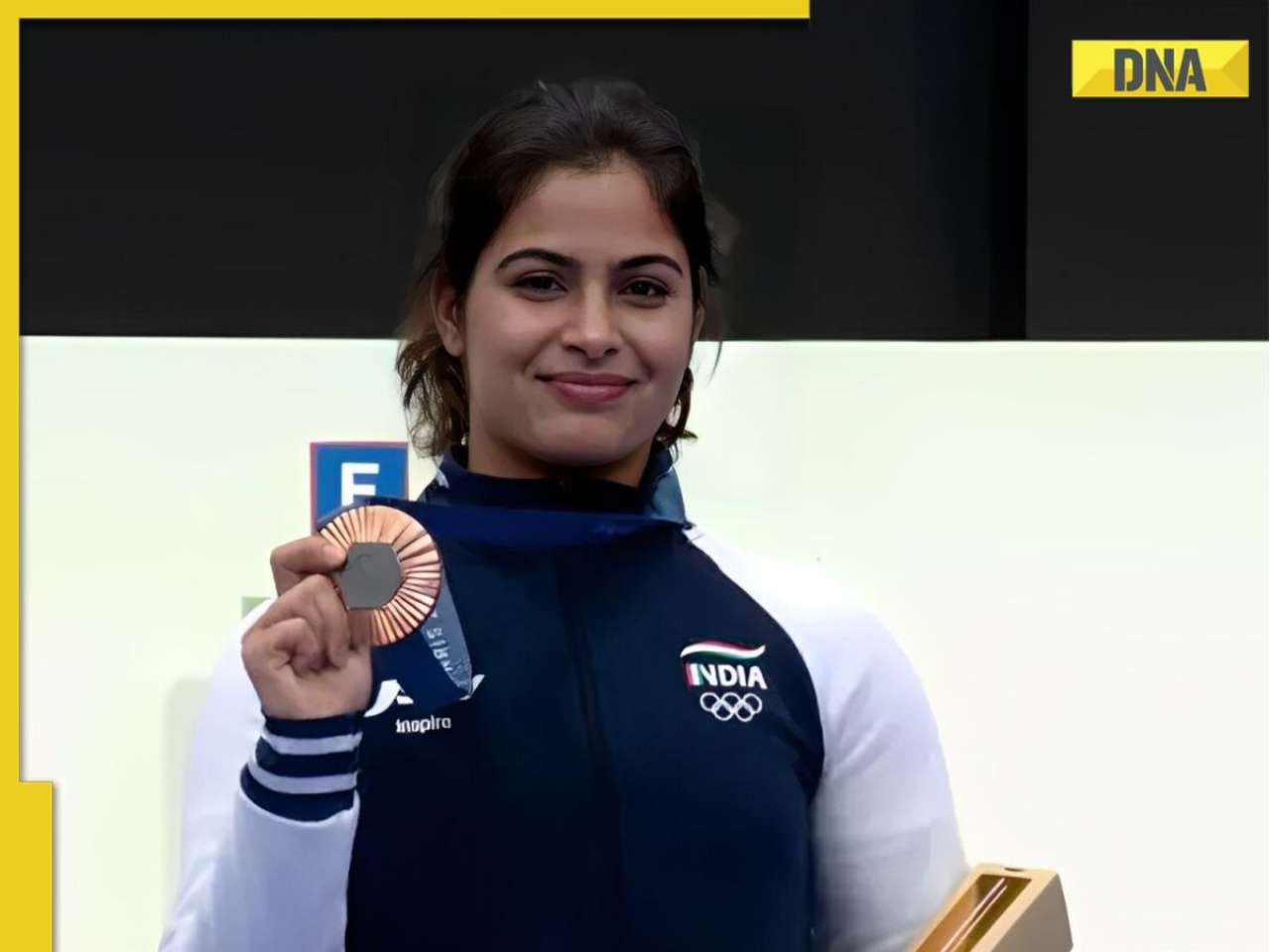

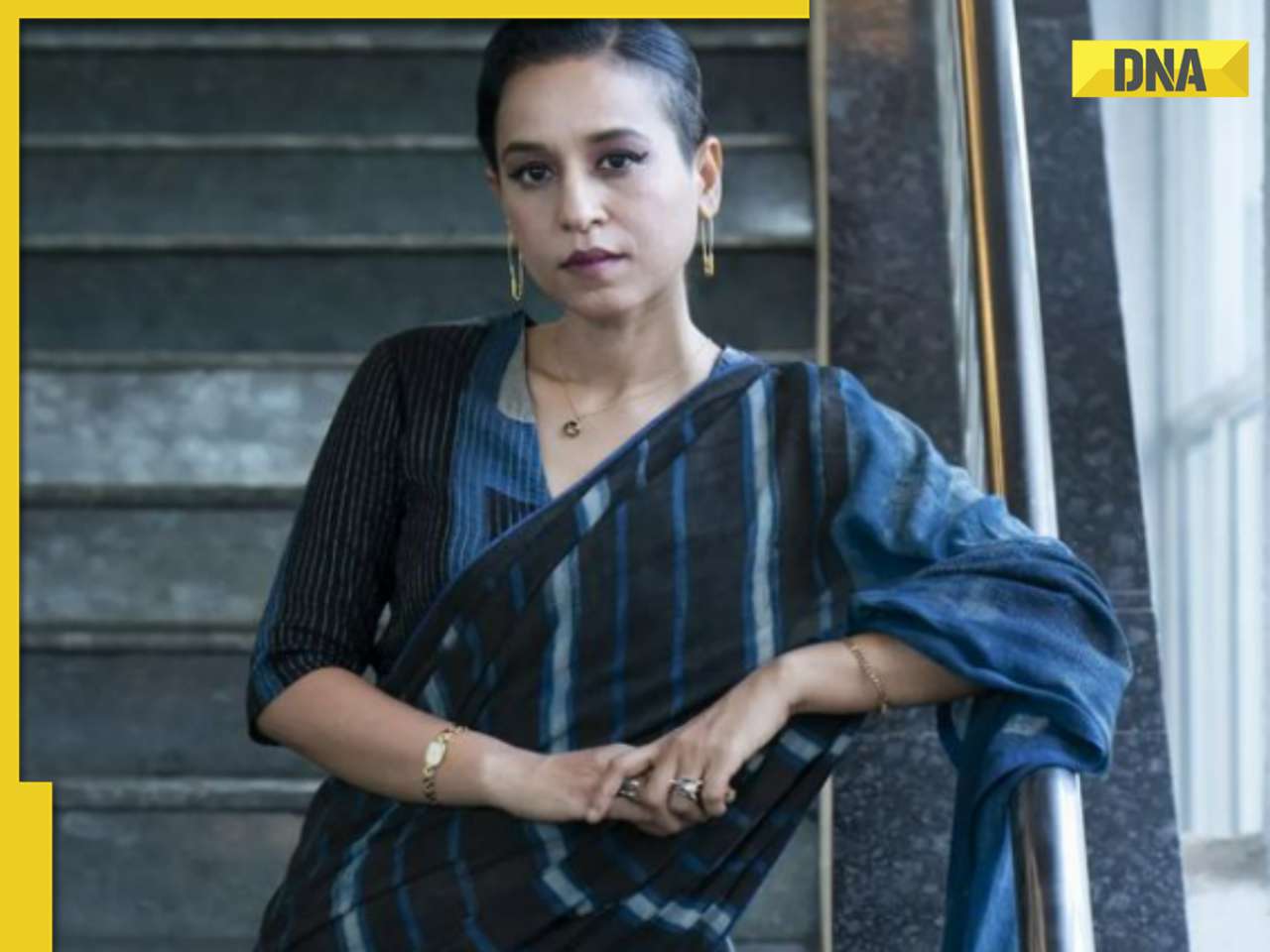






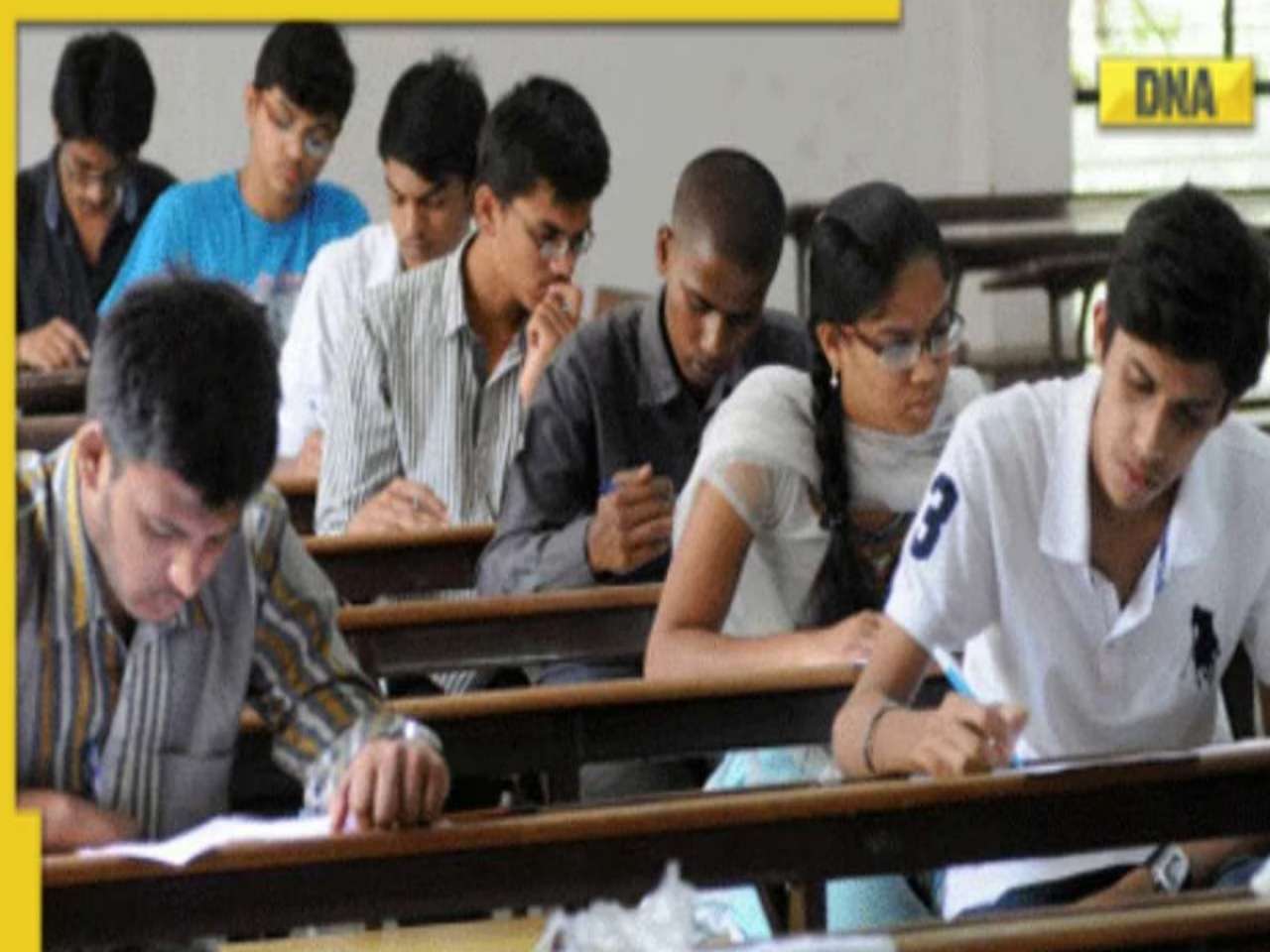


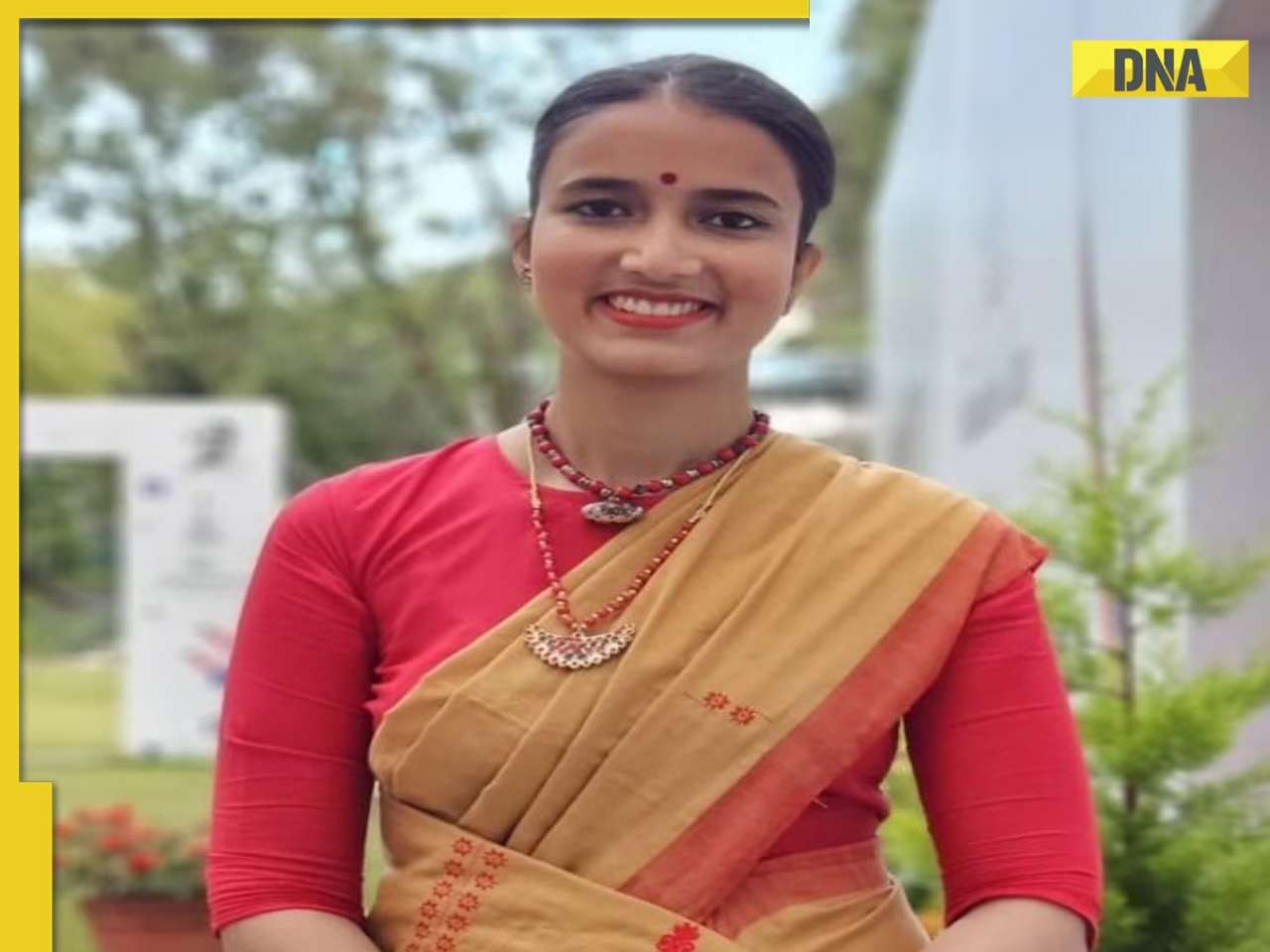











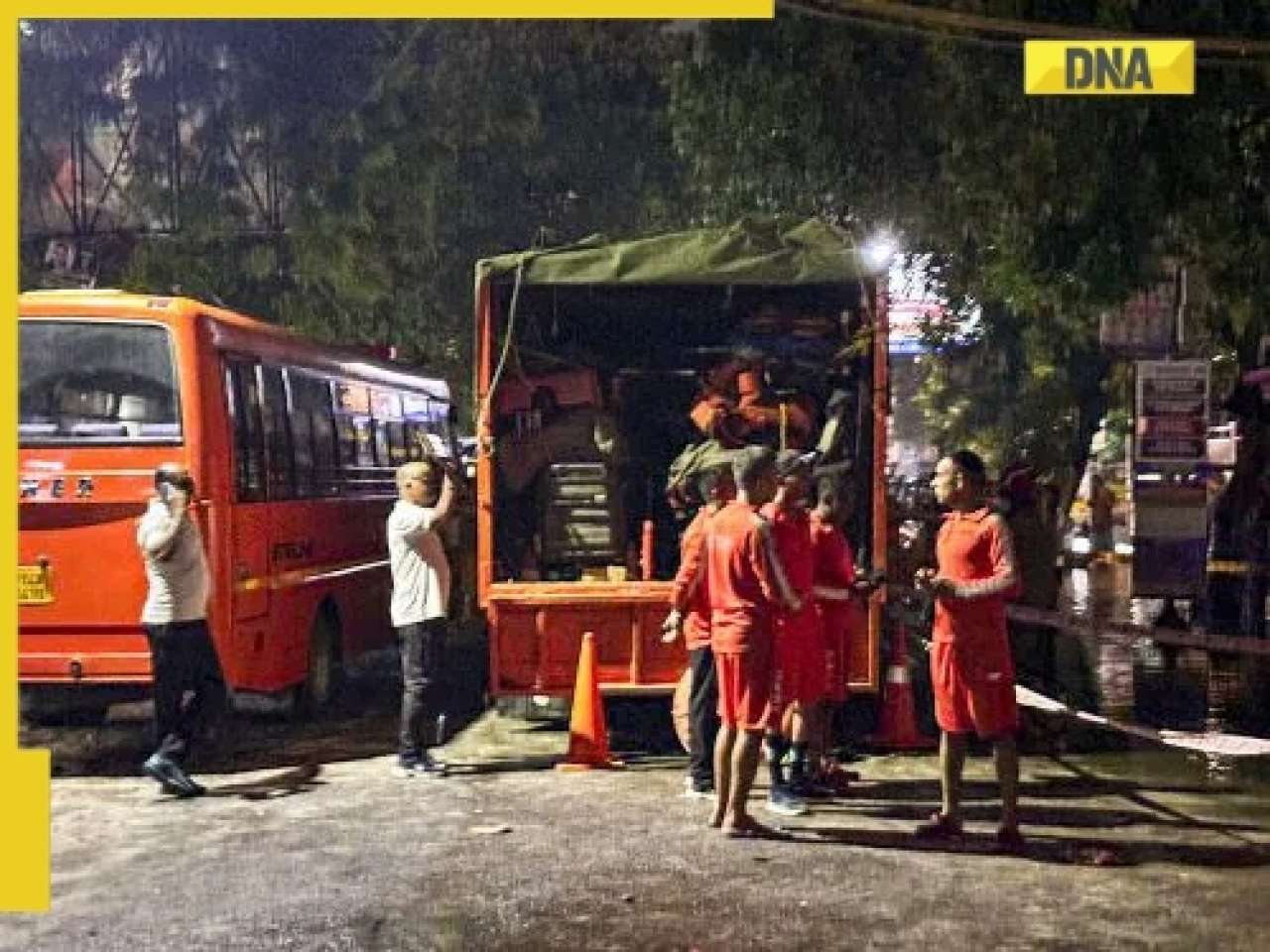
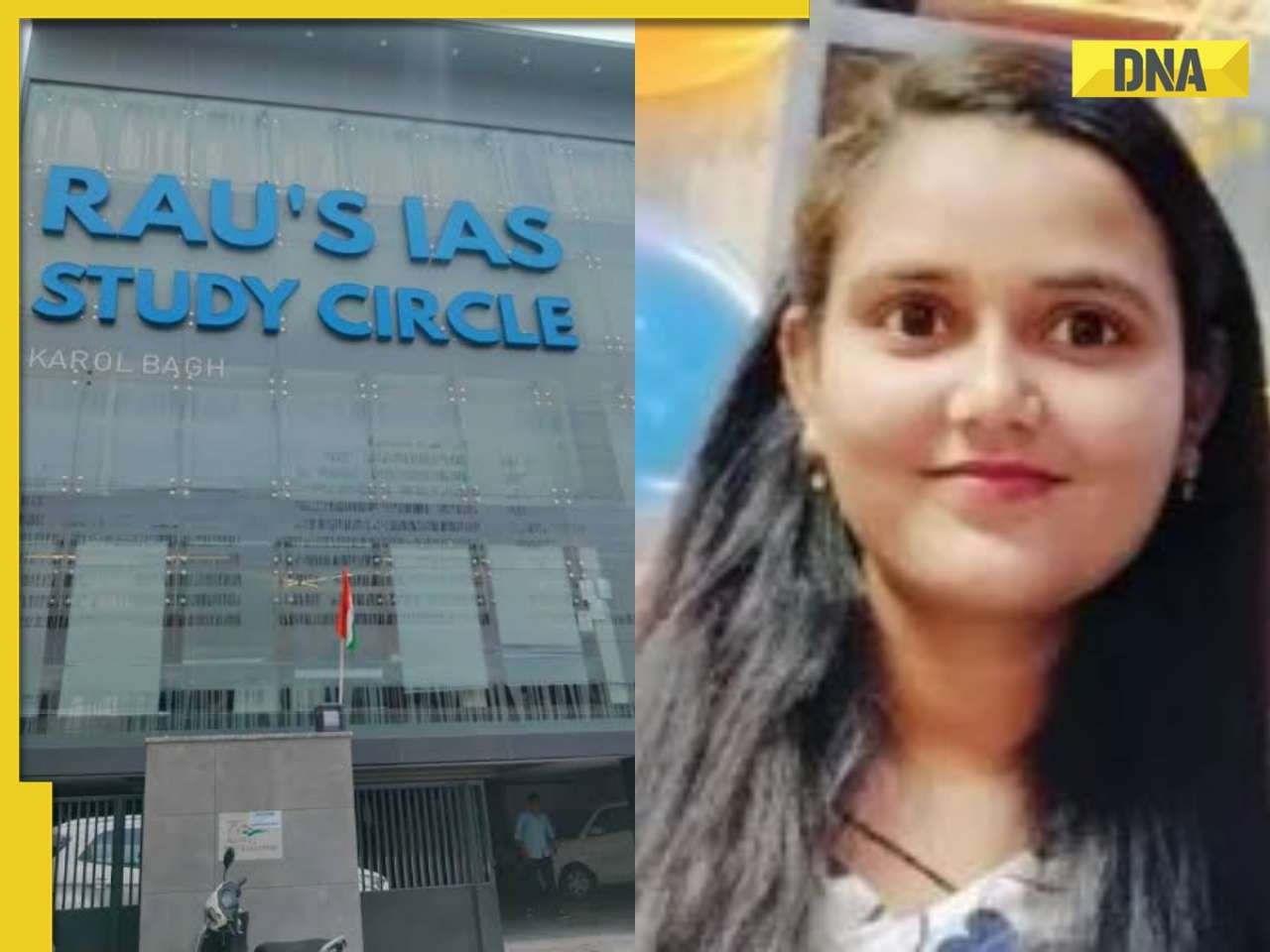
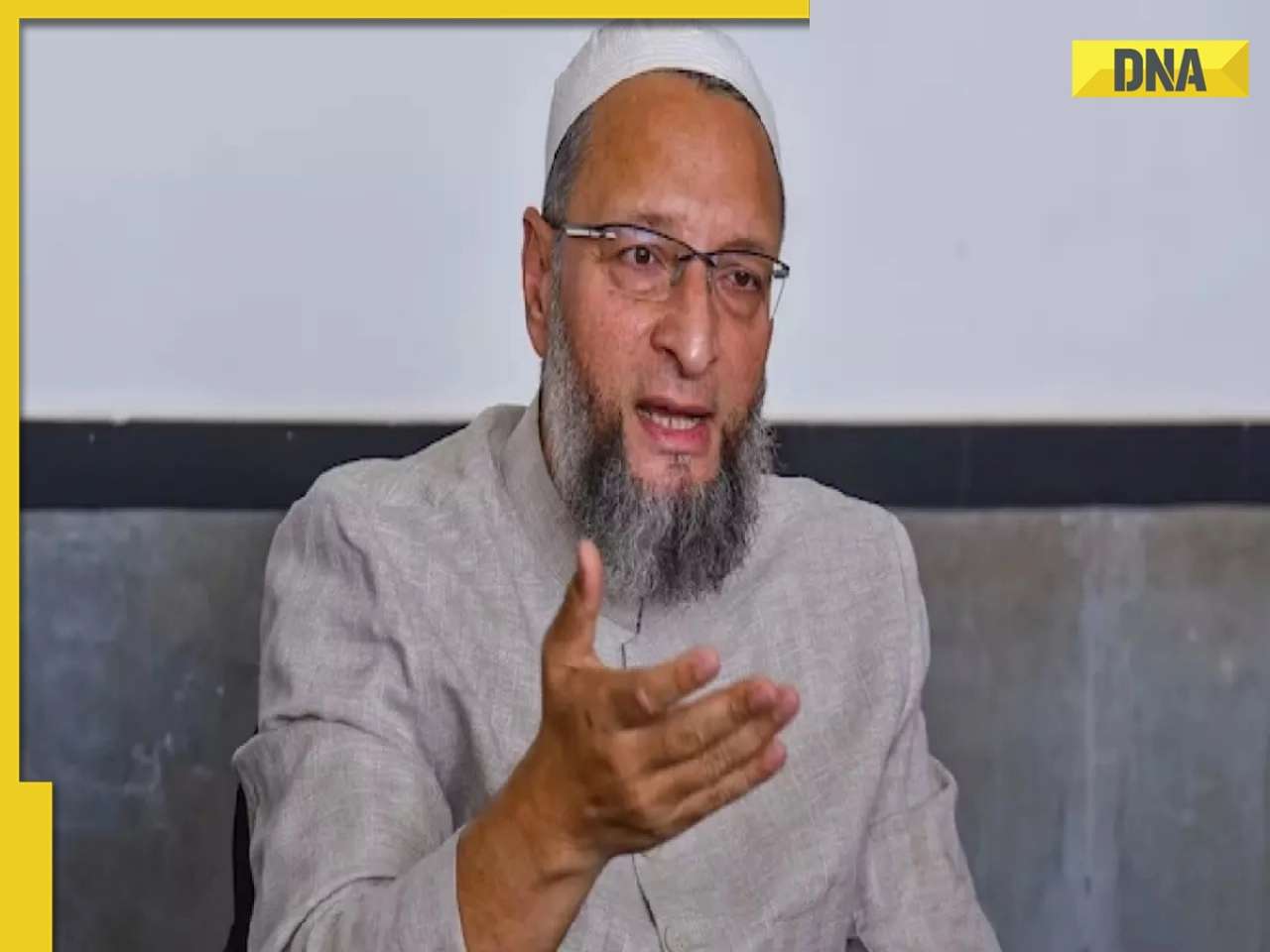






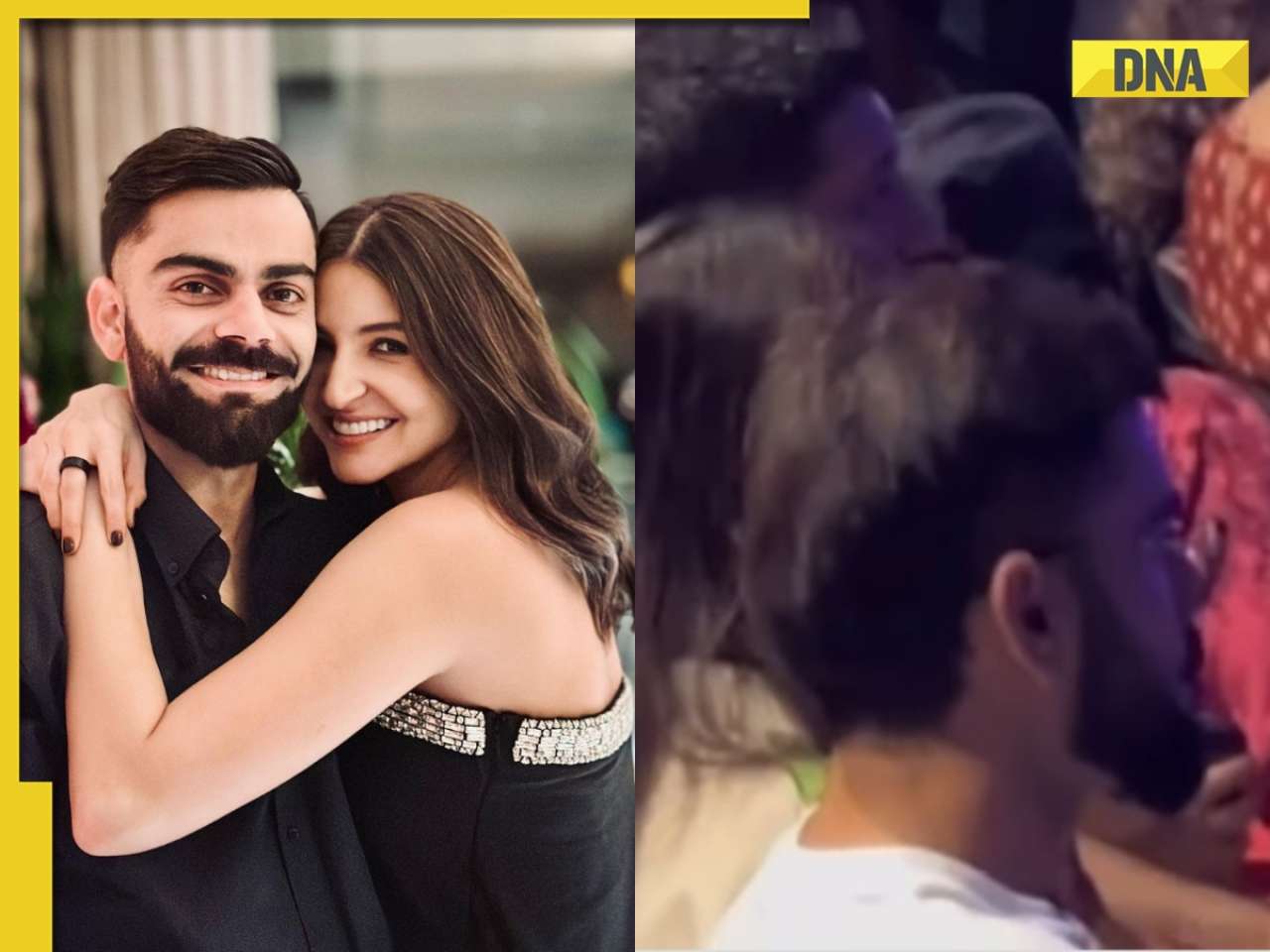
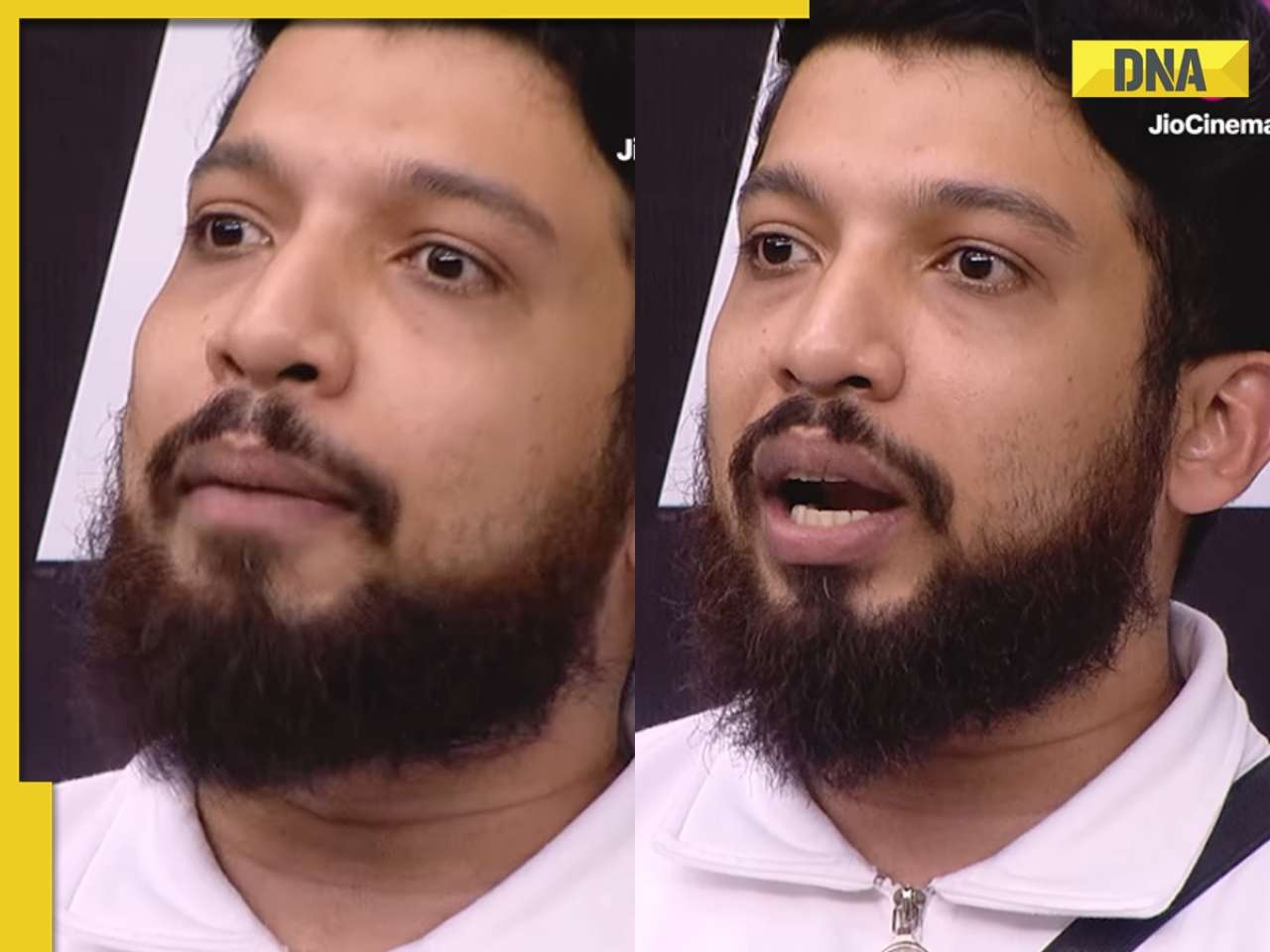
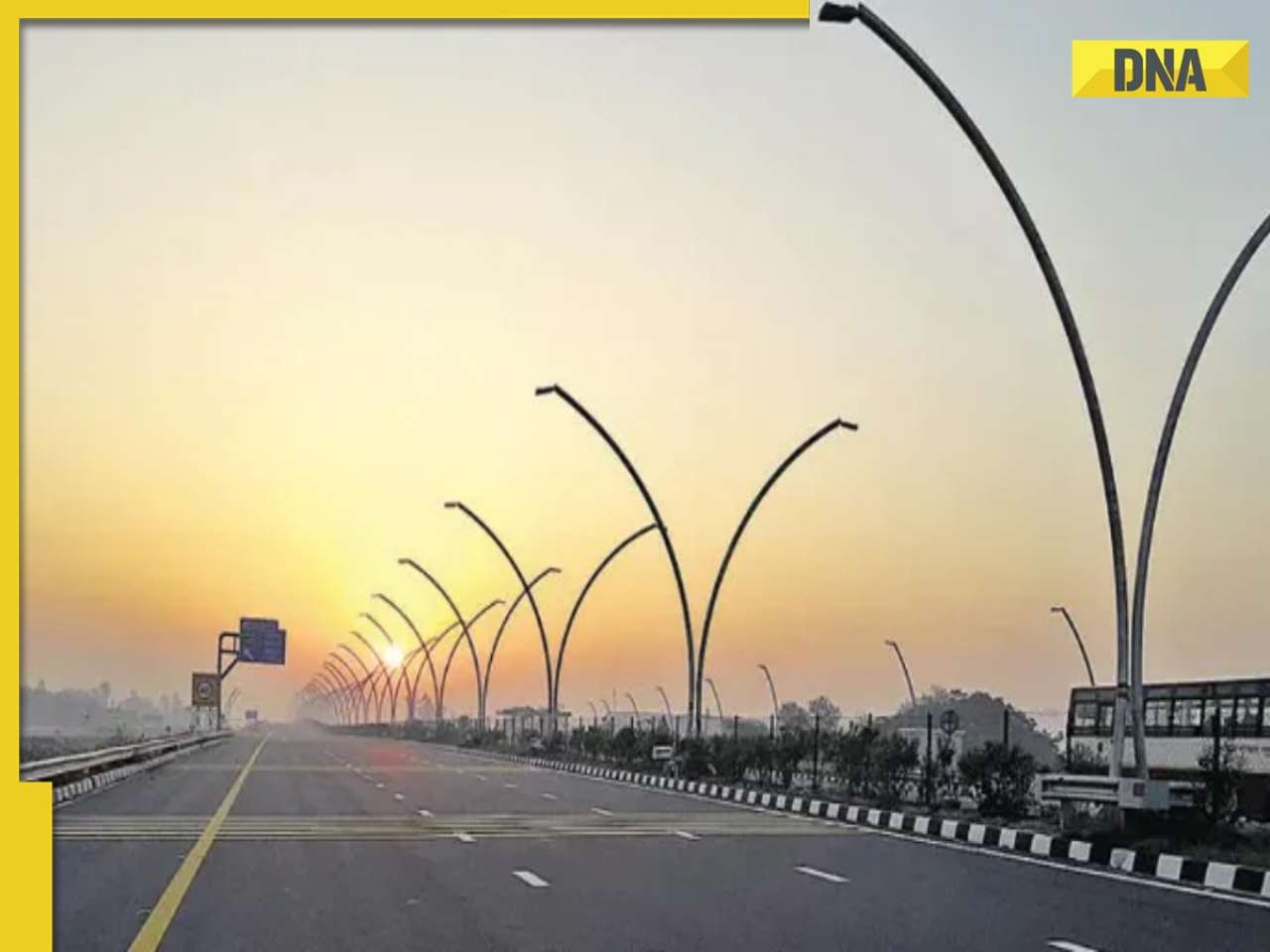





)
)
)
)
)
)
)
)
)
)
)
)
)
)
)




)
)
)
)
)
)